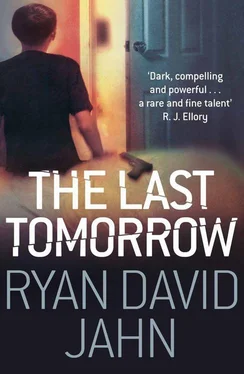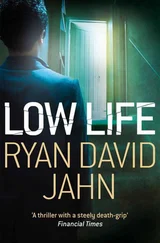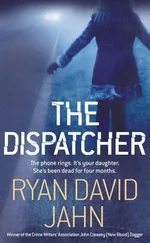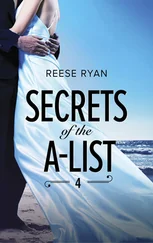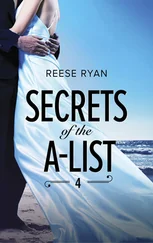Ryan Jahn - The Last Tomorrow
Здесь есть возможность читать онлайн «Ryan Jahn - The Last Tomorrow» весь текст электронной книги совершенно бесплатно (целиком полную версию без сокращений). В некоторых случаях можно слушать аудио, скачать через торрент в формате fb2 и присутствует краткое содержание. Год выпуска: 2012, ISBN: 2012, Издательство: Macmillan Publishers UK, Жанр: Триллер, на английском языке. Описание произведения, (предисловие) а так же отзывы посетителей доступны на портале библиотеки ЛибКат.
- Название:The Last Tomorrow
- Автор:
- Издательство:Macmillan Publishers UK
- Жанр:
- Год:2012
- ISBN:9780230766501
- Рейтинг книги:4 / 5. Голосов: 1
-
Избранное:Добавить в избранное
- Отзывы:
-
Ваша оценка:
- 80
- 1
- 2
- 3
- 4
- 5
The Last Tomorrow: краткое содержание, описание и аннотация
Предлагаем к чтению аннотацию, описание, краткое содержание или предисловие (зависит от того, что написал сам автор книги «The Last Tomorrow»). Если вы не нашли необходимую информацию о книге — напишите в комментариях, мы постараемся отыскать её.
The Last Tomorrow — читать онлайн бесплатно полную книгу (весь текст) целиком
Ниже представлен текст книги, разбитый по страницам. Система сохранения места последней прочитанной страницы, позволяет с удобством читать онлайн бесплатно книгу «The Last Tomorrow», без необходимости каждый раз заново искать на чём Вы остановились. Поставьте закладку, и сможете в любой момент перейти на страницу, на которой закончили чтение.
Интервал:
Закладка:
‘Next time.’
‘All right, I’m holding you to it. What’s your load like today?’
When Fingers isn’t blowing his horn he’s usually got something else going on. He knows everybody and has his fingers in everything, which is how he got the nick. People come to him with goods they need to shift — one day it’ll be a truckload of Canadian cigarettes, the next a duffel bag full of heroin — and he gets a percentage if he can find a buyer. Doesn’t matter what it is, he always finds one.
He’s asked Eugene to help him out once or twice, just need you to drive a truck to the corner of Slauson and Crenshaw, park it, and walk away, but Eugene doesn’t have the temperament for criminal activity. Simply knowing he was driving stolen goods or illegal substances would make him sweat. One sideways glance from a cop and he’d crumble. The money’d be nice — the only people who don’t seem to know the value of money are those who’ve always had it — but Eugene’s simply too square for that kind of work, and knows it. He won’t even sell reefers off his truck, as some of the other milkmen do.
He glances down at his clipboard, looks over the orders.
‘Pretty full. You know Sundays. Everybody loading up for the week.’ He hands Fingers a carbon copy of today’s haul, written in his neat block lettering.
‘Dave, Gary,’ Fingers says, ‘help Eugene out.’
‘I’ll get the ice,’ Gary says, and heads off.
Divco manufactured a few hundred refrigerated trucks in 1940, but the Japanese ended production with Operation Z. After Pearl Harbor was bombed, Divco’s resources were instead diverted to the war effort, and despite the war being over for seven years now, the company has yet to pick up where it left off, so they use ice to keep everything cold while en route. And occasionally Eugene will chop off a small block for folks who don’t yet have refrigerators of their own. There are still a few people along his route who make do with their old ice boxes, setting their eggs and milk on chicken-wire shelves so the cold can permeate.
‘What’s first on the list?’ Dave asks.
‘Two hundred and fourty-three quarts of milk.’
Dave nods, then grabs the pallet truck and pulls it behind him, like an uncooperative dog, toward the walk-ins. As he approaches them, a stainless-steel door swings open and Gary emerges from a freezer with two large blocks of ice in a wheelbarrow. In just under fifteen minutes Eugene’s truck is loaded.
He thanks Dave and Gary, tells Fingers he’ll see him day after tomorrow, and gets into his truck. He starts the engine and rolls down the ramp, through the alley, and out to the street. When he hits his route he’ll swivel the seat aside and drive standing up so he can hop on and off the truck more quickly, but for now he’ll take the cushion.
He heads east toward Boyle Heights where he delivers, rolling past stacks of newspapers sitting on street corners, waiting for newsboys to arrive. In front of him the early morning light is creating a halo around the jagged urban horizon, the day finally beginning. It will be, he’s certain, a day like any other day. And he’s right.
Today will be a day to forget.
He’ll finish his route and grab lunch at a diner. He’ll sip coffee, smoke a cigarette, and read from a paperback novel while his food digests. Lunch will be followed by several drinks at the bar on the first floor of the Galt Hotel. If he meets a woman, he’ll take her to dinner at the Brown Derby just a few doors down, then home to his place for one last drink. If he doesn’t, he’ll simply stumble home, eat dinner from a can, and pull out his typewriter. He’ll stare at the blank page for a long time. He’ll probably even get a couple sentences down. But when he reads over them he’ll see how clumsy they are, how clumsy and false, and he’ll wish he hadn’t expended the energy it took to bang them into existence. He’ll tear the sheet of paper from his typewriter and throw it away.
A day like any other day. A day to forget.
We fall into patterns, boring and comfortable and predictable.
What he cannot predict is that by this time next week his life will be in turmoil.
While he slept two men were murdered, one with a gun and one with a knife, and each of those murders, like stones dropped into still water, sent ripples outward, and eventually those ripples will reach him, rock the small boat that is his life, and send him overboard.
He won’t know it till this time next week, but this life he lives is already over.
EIGHT
1
Carl pulls his car to the curb in front of a diner on Broadway. He hasn’t had a meal since dinner, day before yesterday, and needs to eat. He isn’t hungry, nobody would be after dealing with what he just dealt with, but that hardly matters. His body needs sustenance, so he’ll put food into his mouth, chew, and swallow.
As soon as the boy confessed to the murder, Captain Ellis made a call to the Juvenile Division, and their detectives came in, took the boy in for processing, and took over the case. Except for Carl’s report and testimony come the trial, his part in it is finished. Yet somehow he was the one left explaining to the boy’s mother what was happening. The look on her face was heartbreaking.
But that’s over. No point thinking about it.
The trick is to keep your soul winter-numb.
‘What do you want?’
‘Cheeseburger, I guess.’
Friedman nods, then steps out of the vehicle and walks across the pavement before disappearing through the diner’s smudged glass doors.
Carl looks through the windshield to the street ahead. He frowns at nothing. Against his own will he thinks of his wife. He misses her.
2
They found the tumor in her left breast two years ago. Her doctor recommended a relatively new treatment — nitrogen mustard via hypodermic injection. American soldiers exposed to mustard gas during the war had experienced, as well as blisters on the skin and in the lungs, a noticeably lowered white-blood-cell count. Military doctors thought sulfur mustards might have a similar effect on cancer cells and began a series of secret experiments in which they treated patients with them. After the war ended the experiments were declassified. The best results had come from treating certain lymphomas with nitrogen mustard, but there’d been a noticeable effect on other cancers as well. Carl was hesitant, didn’t like the idea of injecting his wife with a chemical weapon, but Naomi’s cancer was serious and she wanted every possible chance of survival, I’m not ready to die, Carl, so she did it. And started feeling better immediately. The nitrogen mustard appeared to be killing the tumor.
But after a brief period of feeling well, she began to feel worse than she had before treatment. The nitrogen mustard was killing her white blood cells far more quickly than it was killing the cancer cells. After a month they stopped the injections and Naomi had a mastectomy, followed by radium treatment.
She was depressed for a long time. He held her while she cried about the loss of her breast. He told her she was beautiful to him no matter what. And it was true. When he looked into her eyes all he saw was the woman he loved, not the disease that had maimed her. And slowly she came out of her depression, and things began to feel normal again.
But nine months later the cancer returned. It had gone through the chest wall and infested her lungs.
He stayed by her side, he took care of her, he washed the dishes and did the ironing when it got so she couldn’t keep up with the housework. But something else happened as well. He felt himself growing colder toward her in a way he hadn’t before the cancer returned, felt himself preparing for her death.
Читать дальшеИнтервал:
Закладка:
Похожие книги на «The Last Tomorrow»
Представляем Вашему вниманию похожие книги на «The Last Tomorrow» списком для выбора. Мы отобрали схожую по названию и смыслу литературу в надежде предоставить читателям больше вариантов отыскать новые, интересные, ещё непрочитанные произведения.
Обсуждение, отзывы о книге «The Last Tomorrow» и просто собственные мнения читателей. Оставьте ваши комментарии, напишите, что Вы думаете о произведении, его смысле или главных героях. Укажите что конкретно понравилось, а что нет, и почему Вы так считаете.
